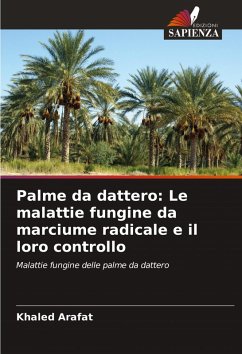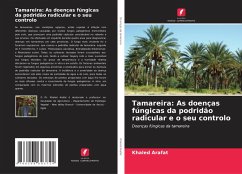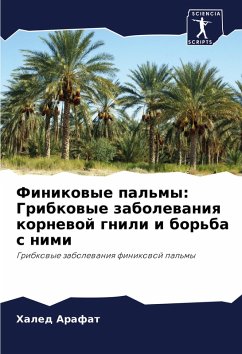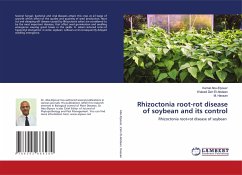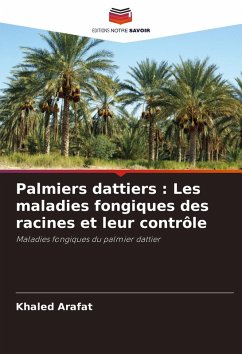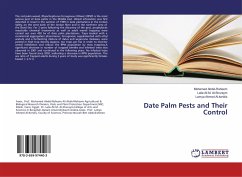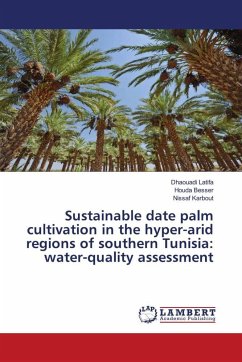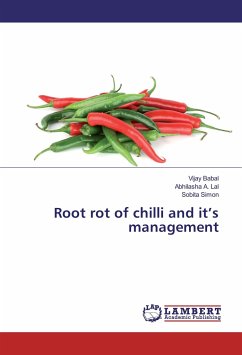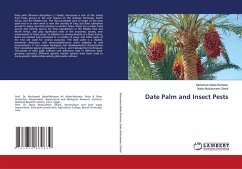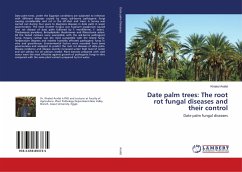
Date palm trees: The root rot fungal diseases and their control
Date palm fungal diseases
Versandkostenfrei!
Versandfertig in 6-10 Tagen
43,99 €
inkl. MwSt.

PAYBACK Punkte
22 °P sammeln!
Date palm trees, under the Egyptian conditions are subjected to infection with different diseases caused by many soil-borne pathogenic fungi causing considerable root rot in the off-shot and trees. A Survey was carried out during four years to diagnosis diseases in date palm in seven governorates. The most virulent fungus was Fusarium oxysporum caused root rot disease of date palm followed by F. moniliforme, F. solani, Thielaviopsis paradoxa, Botrydiplodia theobromae and Rhizoctonia solani. All the tested cultivars were susceptible with the soil-borne pathogenic fungi, Hayany cultivar was the ...
Date palm trees, under the Egyptian conditions are subjected to infection with different diseases caused by many soil-borne pathogenic fungi causing considerable root rot in the off-shot and trees. A Survey was carried out during four years to diagnosis diseases in date palm in seven governorates. The most virulent fungus was Fusarium oxysporum caused root rot disease of date palm followed by F. moniliforme, F. solani, Thielaviopsis paradoxa, Botrydiplodia theobromae and Rhizoctonia solani. All the tested cultivars were susceptible with the soil-borne pathogenic fungi, Hayany cultivar was the most susceptible with the tested fungi. Temperature degrees and relative humidity affected pathogenic fungi in vitro and greenhouse. Environmental factors were recorded from some governorates and analyzed to predict the root rot diseases of date palm. Disease incidence and disease severity increased under high level of water and soil salinity, for all cultivars tested. Plant extracts prepared with cold water were the most effective against growth of pathogenic fungi in vitro compared with the same plant extracts prepared by hot water.



